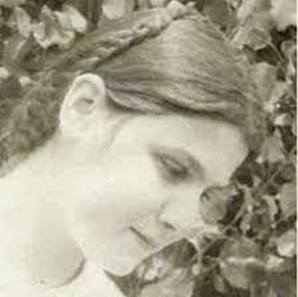The blessed martyr Daniela
10 April 2023This exceptional flower sprang from the ground of Romania in 1967. From an early age, she was very close to God. Whenever she finished at school, she always went home via the church. Her father chided her harshly over this: ‘Where’ve you been. All day in church with your priests. What’s God ever given you?’. She never said anything, but tears flowed from her eyes. She was devout and prayed for hours at a time. Her character was meek and she was kind to everyone. She helped her fellow-students with their school work and would sit at night writing for them.
She was a good student, both at school and at university. She was very hard-working and made all her own clothes. She was a spiritual child of the great elder Fr. Sofian [Boghiu] from the Monastery of Antim. As a university student she looked after a crippled old lady called Ioanna, who’d been forgotten by one and all. Daniela would go every day, in the morning, before university, and then in the evening. She lived quite a long way away so this took a lot of effort. She would wash the old lady, clean her up, do her shopping, sing to her and bring joy to her soul.

(1967- 6 April 2004)
One time someone beat Daniela badly, though she’d done nothing to deserve it. She endured the beating in silence and then knelt and kissed the foot that had struck her so badly. Her character was very meek and she was kind to others. She never condemned anyone and always took the blame herself.
Some of the people in her family tried to persuade her to marry, but she insisted that she wanted to remain with God. ‘You can be married and be with God’, they said. ‘Yes,’ she answered, ‘but if I marry it means I’ll put God to the side a bit and I don’t want that. I want to give everything to God’.
She would pray for hours at night and never went to sleep before completing her rule. Her siblings would say: ‘What does God give you? Why are you going on and on about your priests? What does your faith give you? Your father gives you food. Why did you go to university? To enter a monastery?’. After university she did indeed go to a monastery. Her father searched high and low and, once he’d got her home, he beat her terribly.
The last evening before she left for the monastery for the final time, she wept and prayed ceaselessly. She did hundreds of prostrations, seeking enlightenment from our Lady. She fell asleep as dawn broke. When she awoke, she picked up the little icon of our Lady which she’d been given by Fr. Sofian, made the sign of the cross, kissed the icon and determinedly packed her things. She wrote a letter and gave it to a friend to pass on to Fr. Sofian. This is what it said: ‘Father, I dreamed about the icon of our Lady. I saw it come to life and our Lady looking at me searchingly. I asked her what I should do. I saw that she was watching me with great pain and she had tears on her cheeks. Suddenly she stretched out her hands to pray and a tear fell onto my hand. When the tear touched me, I woke up and decided to leave. So I did. I started on the path of the cross, on the path of Christ the Savior’.
But her father found her again. He dragged her from the monastery and again gave her a terrible beating. He shredded her monastic clothing with scissors and threw it in the garbage. He wrenched the cross from her neck and shouted ‘You and your priests and church’. She fainted. When she recovered she said to her father: ‘Please leave me the icons; I can’t live without them’. Her father then put the icons on the ground, trampled on them, and took them all away. Then she told him: ‘Very well, you’ve taken everything, but you can’t take my soul’. From then on her prayer consisted of “Most holy Lady, help me’ and ‘Lord Jesus Christ, don’t leave me’.
When her father saw that he couldn’t make her depart from the Orthodox way of life, he came up with a diabolical idea. He found some colleagues of his, doctors, and they diagnosed her as suffering from ‘paranoid schizophrenia, accompanied by mystic delirium’.
To the end of her life she was forced to take medication ‘to keep her calm’. She spent her last two years in a hospital with a tube in her nose. Because of the medication she was almost always unconscious. Her father kept watch over her night and day, just in case she came into contact with devout and spiritual people. Being immobile, together with the medication given by the doctor, caused paralysis and blockage of the bowel passage. She died in torment on Tuesday 6 April, 2004, during Great Week. She departed this life at about ten o’clock in the evening.
Her father would never have allowed a priest to come, but, in a miraculous manner, Fr. Constantin learned of her death and, at 11 o’ clock, read the service for the departed. It was the first time her father had gone missing, though he’d been seen earlier at the hospital. Miracles began to occur at her grave. The first of these took place on 12 May, 2004, when a young man who’d suffered from the same illness as she did was cured.
In 2004, she cured a university student who was suffering from an ailment of the blood vessels and, in 2005, a young man who had acute appendicitis. Saint Daniela’s grave is in the Andronache parish cemetery, in the Colentina district of Bucharest.






